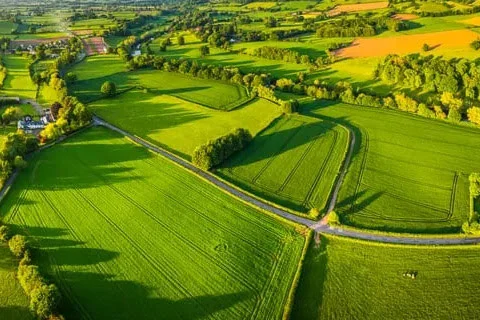Agriculture

From tractors to the land itself, this category covers standards relating to sustainable agriculture.
ANSI/ASABE S629 JUN2016 (R2021)
Framework to Evaluate the Sustainability of Agricultural Production Systems
This Standard is intended to define frameworks for sustainability documentation of all types of farming operations (which includes ranching) typically found around the world.
ISO 18504:2017
Soil quality - Sustainable remediation
ISO 18504:2017 provides procedures on sustainable remediation. In particular, it provides:
- standard methodology, terminology and information about the key components and aspects of sustainable remediation assessment;
- informative advice on the assessment of the relative sustainability of alternative remediation strategies.
ISO 18504:2017 is intended to inform practitioners about contemporary understanding of sustainable remediation. It is not intended to prescribe which methods of assessment, indicators or weights to use. Rather, it is intended to inform consideration of the concept of sustainable remediation in a local legal, policy, socio-economic and environmental context.
The scope of ISO 18504:2017 is restricted to sustainable remediation ? that is demonstrably breaking the source-pathway-receptor linkages ? in a manner that has been shown on a site-specific basis under a specific legal context to be sustainable.
The concepts of "green remediation" and "green and sustainable remediation" (so called GSR) that in some parts of the world are conflated with sustainable remediation are neither endorsed nor discussed in ISO 18504:2017.
ISO 17989-1:2015
Tractors and machinery for agriculture and forestry - Sustainability - Part 1: Principles
ISO 17989-1:2015 provides guidelines to assist designers and manufacturers of tractors and machinery for agriculture and forestry to integrate sustainability principles, practices and considerations into their organizations and processes. This part of ISO 17989 is specifically applicable to equipment used in the production of food, fibres, fuel and lumber for humans and livestock.
NOTE This part of ISO 17989 includes three different levels for the application: principles, recommendations and additional information (annexes).
ISO 17989-1:2015 is addressed to the organization management and provides guidance for considering sustainability aspects relevant for the organization and the product life cycle. It defines the factory gate as the system boundary (Figure 1).
ISO 17989-1:2015 is not applicable to contractual or regulatory purposes or to registration and certification.
Except when they are closely related to sustainability, this part of ISO 17989 does not address issues of occupational health and safety or operator safety aspects of a machine's design. Designers can find guidance on these issues in other International Standards.
IWA 20:2017
Understanding and applying drip irrigation for sustainable agriculture
IWA 20:2017 reviews drip irrigation in comparison to major irrigation methods available and practiced today by farmers worldwide. IWA 20:2017 reviews the benefits of drip irrigation, such as increased yield, reduced water consumption, reduced energy consumption, lower environmental impact, reduced contamination of groundwater and surface water, reduced greenhouse gas emissions and reduced labour.
IWA 20:2017 also reviews some of the limitations of drip irrigation.
IWA 20:2017 does not provide a technical specification for the implementation of drip irrigation.
The qualities of drip irrigation referred to in IWA 20:2017 apply to systems manufactured in accordance with ISO 9261 or equivalent standard.
IWA 20:2017 is intended to be used by agricultural policymakers, infrastructure providers, water supply regulatory bodies and authorities, and food chain and farmer cooperatives interested in developing agricultural policies to preserve natural resources and funds. IWA 20:2017 is also intended to be used by farmers and smallholders interested in applying an economic agricultural method.
